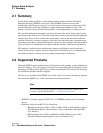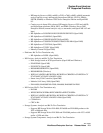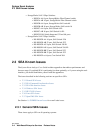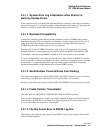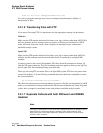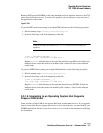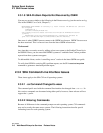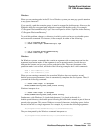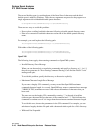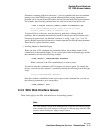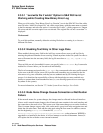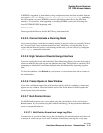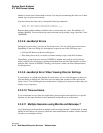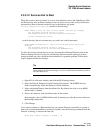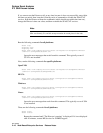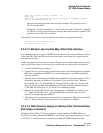System Event Analyzer
2.3 SEA Known Issues
Rev. 9/8/06
2–10 Web-Based Enterprise Services Release Notes
The second double-quote is considered part of the literal line of characters and the third
double-quote is added by Windows. Thus, the two arguments are passed to the program as a
single argument with a embedded double-quote character:
C:\Program Files\someDirectory” C:\anotherDirectory
There are two ways to avoid this problem:
• Do not place a trailing backslash character following a double-quoted directory name.
• Place two consecutive backslash characters at the end of the double-quoted directory
name.
For example, you could replace the following path:
“C:\Program Files\someDirectory\” C:\anotherDirectory
With either of the following paths:
“C:\Program Files\someDirectory” C:\anotherDirectory
“C:\Program Files\someDirectory\\” C:\anotherDirectory
OpenVMS
The following issues apply when entering commands on OpenVMS systems.
• Invalid Directory Error Message
When you use the analysis or translation commands and specify a directory as [...] or [-],
the process generates an "Error During Command Parsing: Can't find the file/dir:" error
message and quits.
To avoid this problem, specify the directory or directories explicitly.
• Maximum Character Length Error Message
If you enter a lengthy CLI command, you may exceed the OpenVMS maximum
command character length. As a result, OpenVMS may return a command error message
"%RMS-W-TNS, terminator not seen" that refuses the number of characters that you
have used.
The user can use the lengthy CLI command by entering “-” at the end of each line
(without space between the last character of the command and “-”). This facilitates the
command to continue even if it is longer than the maximum command character length.
To avoid this error, shorten the parameters in the CLI command. For example, you can
substitute a lengthy absolute file path with a shortened relative path for a file's directory.
• Wildcards Not Expanded



